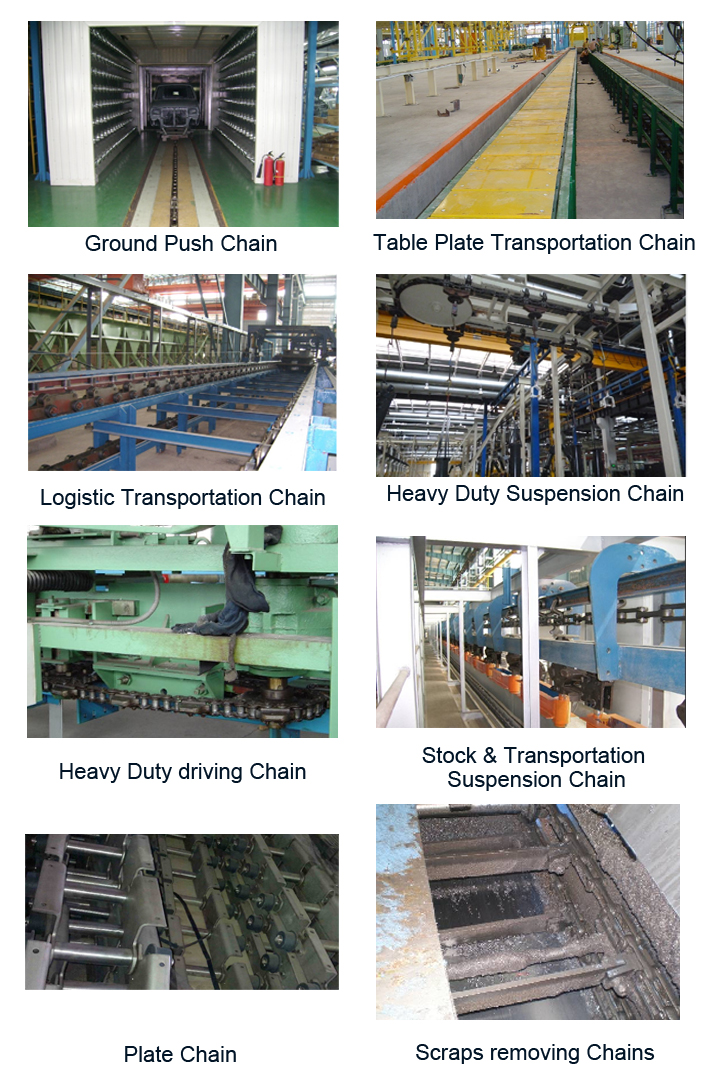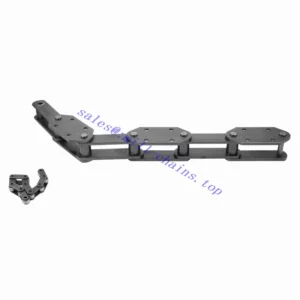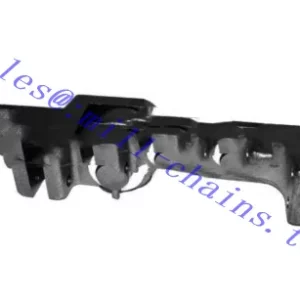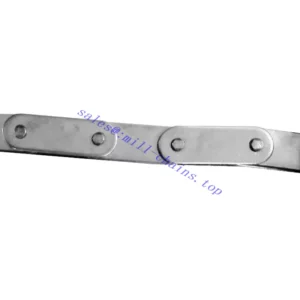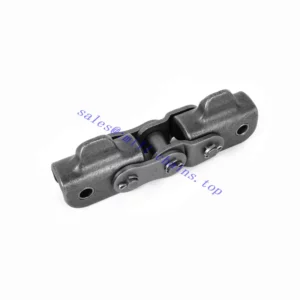Sugar Mill Straight Roller Chain Conveyor Chain
As one of the mill chains manufacturers, suppliers, and exporters of mechanical products, We offer mill chains and many other products.
Please get in touch with us for details.
Mail:[email protected]
Mill Chains
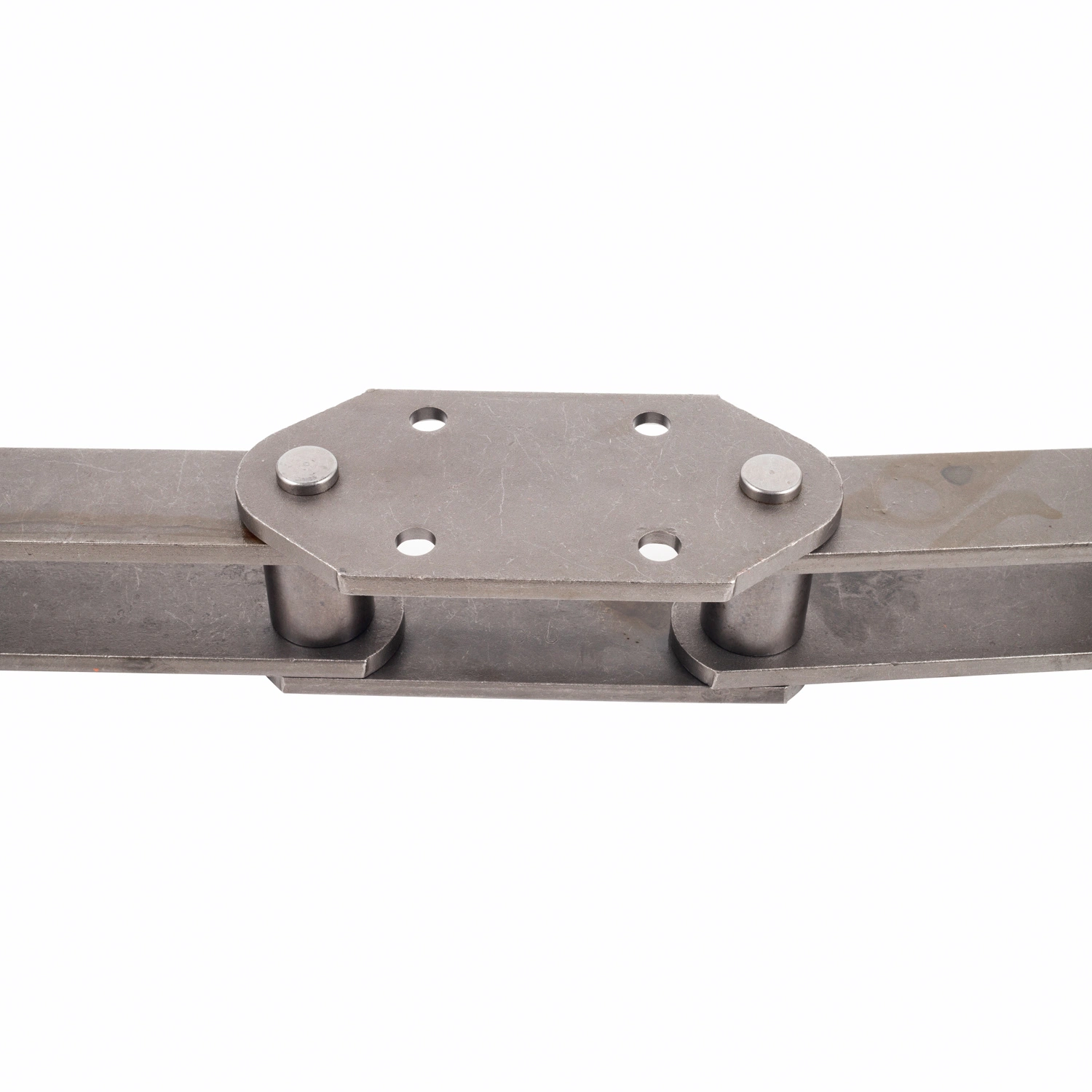
Mill chains are an essential component in many industrial applications, including lumber mills, paper mills, and grain processing facilities. These chains are designed to withstand the harsh operating conditions found in these environments, including high temperatures, heavy loads, and abrasive materials. Mill chains are typically made from high-strength alloys, such as carbon steel, stainless steel, or nickel-plated steel, and are specially engineered to provide reliable performance and long service life.
One of the key features of mill chains is their ability to handle heavy loads. These chains are designed to support large weights, making them ideal for use in heavy-duty applications. They are also able to withstand the high friction and wear that occurs when moving heavy materials, such as logs or grains. This durability makes mill chains a popular choice for industries that require reliable equipment to handle heavy loads.
Another important feature of mill chains is their resistance to corrosion. In many industrial environments, the presence of moisture, chemicals, and other corrosive agents can quickly degrade the performance of equipment. Mill chains are often treated with special coatings or platings, such as zinc, chrome, or nickel, to protect against corrosion and extend their service life. This resistance to corrosion is especially important in industries that operate in harsh environments, such as sawmills and pulp mills.
Mill Chains Specifications
| PITCH | BUSH WIDTH |
ROLLER DIA |
PIN | PLATE | MIN. TENSILE STRENGTH |
MAX. TENSILE STRENGTH |
WEIGHT | |||||||
| d | L1 | L2 | H | t/T | ||||||||||
| mm | mm | mm | mm | mm | mm | mm | mm | KN/min | KN/min | kg/m | ||||
| 101.60 | 31.80 | 57.15 | 15.88 | 34.40 | 38.40 | 38.10 | 6.40 | 72.3 | 8.20 | 11.67 | ||||
| 101.60 | 30.00 | 47.00 | 15.88 | 41.00 | 45.00 | 41.00 | 10.00 | 242.0 | 19.40 | 17.98 | ||||
| 127.00 | 38.40 | 69.85 | 19.00 | 45.10 | 51.40 | 50.80 | 9.60 | 180.0 | 20.30 | 19.22 | ||||
| 152.40 | 30.00 | 66.70 | 26.92 | 35.50 | 41.50 | 50.80 | 8.00 | 167.0 | 13.40 | 16.11 | ||||
| 152.40 | 37.70 | 69.85 | 18.90 | 45.00 | 49.30 | 50.80 | 9.50 | 250.0 | 28.20 | 17.20 | ||||
| 152.40 | 37.70 | 69.85 | 18.90 | 44.90 | 50.30 | 57.20 | 9.50 | 377.9 | 28.20 | 18.74 | ||||
| 152.40 | 38.00 | 76.20 | 23.83 | 47.10 | 54.90 | 61.90 | 10.30 | 635.0 | 36.10 | 22.27 | ||||
| 152.40 | 37.80 | 69.85 | 76.20 | 73.00 | 22.23 | 43.90 | 53.20 | 57.20 | 9.50 | 444.5 | 33.30 | 18.50 | 19.50 | 19.20 |
Mill Chains Benefits
High strength and durability: Mill chains are made of high-strength steel, which makes them very durable and resistant to wear and tear. This makes them ideal for use in harsh environments.
Efficiency: Mill chains are very efficient at transmitting power, which can help to improve the overall performance of an industrial machine.
Low maintenance: Mill chains are relatively low-maintenance, which can save businesses money on operating costs.
Long lifespan: Mill chains can last for many years with proper care, which makes them a cost-effective investment.
Uses Of Mill Chains Benefits
Conveyors: Mill chains are commonly used in conveyor systems to transport materials. They are able to handle heavy loads and can operate in a variety of environments.
Machine tools: Mill chains are used in machine tools to power various operations, such as sawing, milling, and drilling. They are able to provide a high level of torque and can operate at high speeds.
Mining: Mill chains are used in mining operations to transport materials and power machinery. They are able to operate in harsh environments and can handle heavy loads.
Power generation: Mill chains are used in power generation plants to transmit power between turbines and generators. They are able to operate at high speeds and can handle high loads.
Other industrial applications: Mill chains are used in a variety of other industrial applications, such as food processing, packaging, and manufacturing. They are a versatile and reliable type of chain drive that can be used in a wide range of applications.
Maintenance tips for Mill Chains
Regular inspection: The first step in maintaining mill chains is to inspect them regularly for signs of wear and tear. This should be done at least once a month, and more often if the chains are used in harsh environments or under heavy loads.
Cleaning: Mill chains should be cleaned regularly to remove dirt, debris, and other contaminants. This can be done with a mild detergent and water, or with a commercial chain cleaner.
Lubrication: Mill chains must be lubricated regularly to prevent wear and tear. The type of lubricant used will depend on the environment in which the chains are operating.
Adjustment: Mill chains should be adjusted regularly to ensure that they are properly tensioned. This will help to prevent the chains from slipping or breaking.
Replacement: Mill chains should be replaced when they are worn out or damaged. This will help to prevent accidents and ensure the continued safe operation of the machine.
We are one of the best mill chain manufacturers. We have exported our products to clients around the world and earned a good reputation because of our superior product quality and after-sales service. We warmly welcome customers both at home and abroad to contact us to negotiate business, exchange information, and cooperate with us!
Application
